Today Current Affairs: 12th June 2021 for UPSC IAS exams, State PSC exams, SSC CGL, State SSC, RRB, Railways, Banking Exam & IBPS, etc
Table of Contents
Vehicle Scrappage Policy:
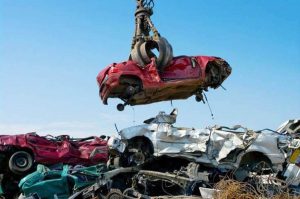
Finance and Corporate Affairs Minister Nirmala Sitharaman has called for expediting the implementation of the vehicle scrappage policy.
- Old vehicles will have to pass a fitness test before re-registration and as per the policy government commercial vehicles more than 15 years old and private vehicles which are over 20 years old will be scrapped.
- As a disincentive, increased re-registration fees would be applicable for vehicles 15 years or older from the initial date of registration.
- The state governments may be advised to offer a road-tax rebate of up to 25% for personal vehicles and up to 15% for commercial vehicles to provide an incentive to owners of old vehicles to scrap old and unfit vehicles.
Issues with the new policy:
- Limited incentive and poor cost economics for trucks.
- Lack of addressable volumes for other segments.
- The potential benefit from scrapping a 15-year-old, entry-level small car will be ₹70,000, whereas its resale value is around ₹95,000.
Sub-Mission On Agricultural Mechanization (SMAM) Scheme:
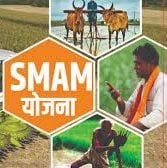
The Government of India has released funds for various activities of Farm Mechanization under the Sub-Mission on Agricultural Mechanization (SMAM) scheme.
- The Ministry of Agriculture and Farmers Welfare launched SMAM in 2014-15.
- Under it, the subsidy is provided for the purchase of various types of agricultural equipment and machinery to the extent of 40-50% for States other than NER (North Eastern Region) States and for the NER States, it is 100% limited to Rs.1.25 lakhs per beneficiary.
- The agriculture ministry has also developed a Multilingual Mobile App, ‘CHC (Custom Hiring Centres)- Farm Machinery’ which connects farmers with Custom Hiring Service Centres situated in their locality.
- Aim: Increasing the reach of farm mechanization to small and marginal farmers and to the regions and difficult areas where farm power availability is low.
- Objectives:
- Promoting ‘Custom Hiring Centres’ and ‘Hi-tech Hubs of High-Value Machines’ to offset the adverse economies of scale arising due to small and fragmented landholding and the high cost of individual ownership.
- Creating awareness among stakeholders through demonstration and capacity building activities.
- Ensuring performance testing and certification of agricultural machines at designated testing centres located all over the country.
Ram Prasad Bismil:

The Ministry of Culture organised a special ceremony at Shahjahanpur, Uttar Pradesh to mark the birth anniversary of freedom fighter Ram Prasad Bismil.
- Was born on 11th June 1897, in a village in Uttar Pradesh’s Shahjahanpur district to Murlidhar and Moolmati.
- Was among the most noteworthy Indian freedom fighters who resisted British colonial forces till his last breath.
- Joined the Arya Samaj founded by Dayananda Saraswati in 1875. This had a profound influence on him, he often employed poetry as his weapon of choice in the fight against the imperialist forces.
- The ideals of a revolution first took root in his mind when he read about the death sentence awarded to Bhai Parmanand, an Indian nationalist and Arya Samaj missionary.
- He was all of 18 then and vented his anguish through his poem ‘Mera Janm’.
- Believed that freedom cannot be achieved without violence, bloodshed, which meant his views were in stark contrast to Mahatma Gandhi’s ideals of ‘ahimsa’.
- Formed organisation Matrivedi and got in touch with Genda Lal Dixit, a school teacher.
- Both shared revolutionary ideas and wanted to organise the youth of the country to fight the British government.
- Bismil was one of the chief founders of the Hindustan Republican Association (HRA) along with Sachindra Nath Sanyal and Jadugopal Mukherjee.
- HRA was founded in 1924 and its constitution was drafted chiefly by Bismil.
- He Was involved in the Mainpuri Conspiracy of 1918 in which police found a few young people including Bismil selling books that were not prescribed by the government.
- Published a pamphlet titled ‘Deshwasiyo ke Naam’ and distributed it along with his poem ‘Mainpuri ki Pratigya’. To collect funds for the parties, they looted government coffers.
- He escaped arrest by jumping into the Yamuna River.
- In 1925, Bismil and his companions Chandrasekhar Azad and Ashfaqulla Khan decided to loot a train in Kakori near Lucknow.
- They were successful in their attempt but were arrested alongside a dozen other HRA members within a month of the attack and tried under the Kakori Conspiracy Case.
- The legal process lasted 18 months. Bismil, Lahiri, Khan and Thakur Roshan Singh were awarded death sentences.
EnVision Mission To Venus: European Space Agency:

European Space Agency (ESA) has announced a new mission- EnVision mission to Venus.
- It is a European Space Agency (ESA) that led the mission with contributions from the National Aeronautics and Space Administration (NASA).
- It is likely to be launched sometime in the 2030s. Once launched on an Ariane 6 rocket, the spacecraft will take about 15 months to reach Venus and will take 16 more months to achieve orbit circularisation.
- The mission will carry a range of instruments to study the planet’s atmosphere and surface, monitor trace gases in the atmosphere and analyze its surface composition.
- EnVision will follow another ESA-led mission to Venus called ‘Venus Express’ (2005-2014) that focussed on atmospheric research and pointed to volcanic hotspots on the planet’s surface.
‘Namaste Yoga’ Mobile App:
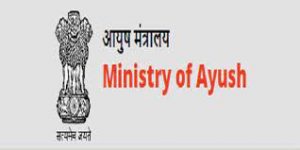
During the curtain raiser event for the 7th International Day of Yoga (IDY) on June 11, 2021, a mobile application called “Namaste Yoga” was launched. This app is devoted to Yoga.
- The event was organized by the Ministry of Ayush in association with Morarji Desai National Institute of Yoga (MDNIY).
- On the occasion, Ayush Minister Shri Kiren Rijiju highlighted about 10-day series on Doordarshan on IDY 2021, and central message of this series is “Be with Yoga Be at Home”.
- Namaste Yoga app is designed as an information platform for the public.
- It was launched with the aim of raising awareness about yoga and make it accessible to a larger community.
International Day of Yoga (IDY):
- IDY is observed on 21st June every year. In the year 2021, IDY will be celebrated under the theme- “Yoga at home and Yoga with Family”.
- In 2020, the theme for the day was ‘Yoga for Health – Yoga at Home’.
Kulbhushan Jadhav Case:
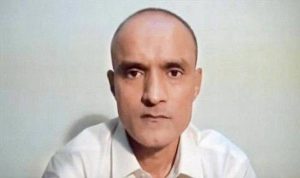
Pakistan’s National Assembly has passed the ICJ (Review and Re-consideration) Bill, 2020 to provide the right of appeal to death-row prisoner Kulbhushan Jadhav.
- The Bill is aimed at allowing Jadhav to have consular access in line with the International Court of Justice (ICJ)
- Jadhav, a 51-year-old retired Indian Navy officer, was sentenced to death by a Pakistani military court on charges of espionage and terrorism in April 2017.
- India approached the ICJ against Pakistan for denial of consular access to Jadhav and challenging the death sentence.
- The Hague-based ICJ had ruled in July 2019 that Pakistan must undertake an “effective review and reconsideration” of the conviction and sentence of Jadhav and also to grant consular access to India without further delay.
Key observations made by the ICJ:
- Islamabad has violated Article 36 of the Vienna Convention of Consular Relations, 1963, by not informing India about Jadhav’s arrest immediately after Pakistan Army had taken him into custody.
- India had been deprived of ‘right to communicate with and have access to Jadhav, to visit him in detention, and to arrange for his legal representation.
India’s Forex Reserves Crossed $600:

India’s forex reserves crossed $600 mark for the first time and as on June 4, it stood at $605 billion. With this, India equals Russia as the fourth largest reserve holder worldwide
- India’s forex reserve was $605.008 billion while for Russia it was $605.2 billion.
- It took a year for reserves to rise by $100 billion.
- Huge forex reserves have improved India’s import cover substantially.
- By December 2020, foreign exchange reserves cover of imports increased to 18.6 months.
Foreign exchange or Forex reserves:
- Forex is assets on reserves that are held by a central bank in foreign currencies. It includes bonds, treasury bills, and other government securities.
- Most of the foreign exchange reserves are held in U.S. dollars.
- These reserves serve several purposes and ensure that the central bank has backup funds in case national currency rapidly becomes insolvent or devaluate.
- India’s Forex Reserves include- Gold, Foreign Currency Assets, Special Drawing Rights, and Reserve position with International Monetary Fund (IMF).
Rebecca Grynspan To Head UNCTAD:

UN General Assembly (UNGA) has approved the nomination of Rebecca Grynspan to head the United Nations Conference on Trade and Development (UNCTAD). She is an economist from Costa Rica.
- She will be the first woman and Central American to lead the Geneva-based organization, UNCTAD.
- She was nominated as secretary-general of UNCTAD by Secretary-General Antonio Guterres.
- Rebecca Grynspan has been secretary-general of the Ibero-American General Secretariat since 2014.
- This secretariate supports preparations for Ibero-American summits.
- She has also worked as deputy administrator of the United Nations Development Program (UNDP) from 2010 to 2014. She also served as UNDP’s regional director for Latin America and the Caribbean.
United Nations Conference on Trade and Development (UNCTAD):
- UNCTAD was established as a permanent intergovernmental body in 1964.
- It is a part of the United Nations Secretariat that deals in trade, investment, and developmental issues.
UN Security Council (UNSC):

Countries including Albania, Brazil, Gabon, Ghana, and United Arab Emirates (UAE) have been elected unopposed to the powerful UN Security Council (UNSC) as non-permanent members for 2022-23 terms.
- UN General Assembly (UNGA) has held elections to elect five non-permanent members for UNSC.
- They will take their seats on Council for a two-year term from January 1, 2022.
- Five countries won elections unopposed because they were the only candidates from their respective regional groups.
Regional distribution of seats in UNSC - As per regional distribution for the 2021 election, three seats were available from African & Asian States. Gabon, Ghana, and United Arab Emirates won these three sears.
- Apart from that, one Latin American and Caribbean Group seat was available for which Brazil was elected. While Albania won the Eastern European Group seat.
- Estonia, Niger, Saint Vincent & Grenadines, Tunisia and Vietnam will complete their two-year terms on UNSC in 2021.
- Thus, to fill this seat, new non-permanent members were elected.
- They will sit at the table along with five permanent members China, France, Russia, United Kingdom & the United States, and five non-permanent members India, Ireland, Kenya, Mexico & Norway.
- India will also assume rotating Presidency of the Security Council in August.
Canadian Hydrogen Intensity Mapping Experiment (CHIME):
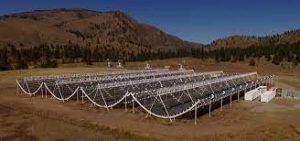
Scientists with the Canadian Hydrogen Intensity Mapping Experiment (CHIME) Collaboration have assembled the largest collection of fast radio bursts (FRBs) in the telescope’s first FRB catalogue.
- CHIME is an interferometric radio telescope.
- It is located in British Columbia, Canada.
- It consists of four antennas consisting of 100 x 20 metre cylindrical parabolic reflectors with 1024 dual-polarization radio receivers suspended on support above them.
- The antenna receives radio waves from hydrogen in space at frequencies in the 400–800 MHz range.
Discovered Small Field (DSF) Bid Round-III:
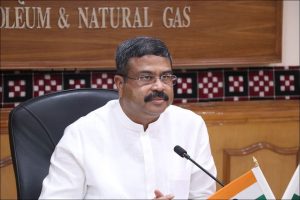
Discovered Small Field (DSF) bid round-III for international competitive bidding was launched by Dharmendra Pradhan, Minister of Petroleum & Natural Gas and Steel.
- The government of India had launched Discovered Small Field (DSF) Policy in 2015 for awarding discovered acreages and monetize the unmonetized discoveries.
- The DSF policy has multiple attractive features like revenue sharing contract model with a low regulatory burden, no minimum biddable work program, no prior technical qualification required, no upfront signature bonus, etc.
- In DSF Round – I launched in 2016, 134 bids were submitted for 34 contract areas by 47 companies. 30 Revenue Sharing Contracts were signed.
- In DSF Round – II launched in 2018, 145 bids were submitted for 24 contract areas.
- 24 Revenue Sharing Contracts were signed.
- Encouraged by the success of DSF bid rounds-I &II, the Government of India has extended the DSF Policy by launching DSF bid round-III.
World Health Organization High-Level Coalition on Health and Energy Platform of Action.:
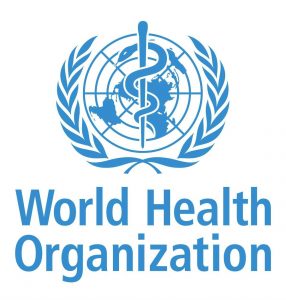
Dr. Harsh Vardhan, Union Minister for Health and Family Welfare digitally addressed the first meeting of the World Health Organization High-Level Coalition on Health and Energy Platform of Action.
Key Highlights of his address:
- An expert body called the National Action Plan on Climate Change and Human Health was constituted by the Government of India with the multiple objectives of creating awareness amongst the general population, healthcare providers, and policymakers regarding the impact of climate change on human health.
- This National Expert Group submitted its report recently in April 2021 with the inclusion of Subject-Specific Health Action Plans on identified Climate Sensitive Diseases and ‘One Health’.
- In the context of “Green and Climate Resilient Healthcare Facilities”, India became a signatory to the Malé Declaration in 2017 and agreed to promote climate-resilient healthcare facilities to be able to withstand any climatic event.
75th Session Of The United Nations General Assembly (UNGA) on prevention of HIV/AIDS.:
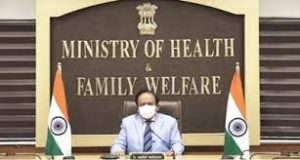
The Union Health Minister addressed the 75th session of the United Nations General Assembly (UNGA) on the prevention of HIV/AIDS.
- The Resolution 75/260 of UNGA deals with the Implementation of the Declaration of Commitment on HIV/AIDS and the political declarations on HIV/AIDS.
- HIV/AIDS Prevention Model: India’s unique HIV prevention model is centered around the concept of ‘Social Contracting’ through which the ‘Targeted Interventions Program’ is implemented with support from civil society.
- The program is aimed at behavior change, communication, outreach, service delivery, counseling & testing, and ensuring linkages to HIV care.
- Legal Framework: The HIV & AIDS Prevention and Control Act, 2017, provides a legal and enabling framework to safeguard the human rights of infected and affected populations.
- Free Treatment: India is providing free anti-retroviral treatment to close to 1.4 million people.
- Anti-retro-viral therapy: It is a combination of daily medications that stop the virus from reproducing.
- The therapy helps in protecting CD4 cells thus keeping the immune system strong enough to fight off the disease.
It, besides reducing the risk of transmission of HIV, also helps in stopping its progression to AIDS (a spectrum of conditions caused by infection due to HIV).
Online Module For Compiling Out-Of-School Children’s Data:
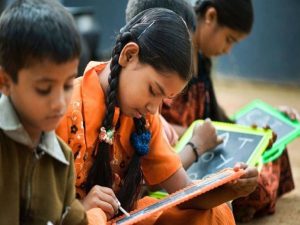
The Ministry of Education has developed an online module for compiling out-of-school (due to Covid-19 pandemic) children’s data identified by each State/UT.
- The collected data will be mapped with special training centers on the PRABANDH portal of Samagra Shiksha.
Key Points - Through the module, the government will facilitate age-appropriate admissions of children in the age group of 6-14 years and those belonging to socially and economically disadvantaged groups.
- Also, for out-of-school children in the 16-18 years age group, financial assistance will be provided for the first time in the session 2021-22, to continue their education through open/distance learning mode.
- PRABANDH (PRoject Appraisal, Budgeting, Achievements and Data Handling System) is a step towards leveraging technology to increase efficiency and manage the implementation of a centrally sponsored integrated scheme for schooling- Samagra Shiksha.
- It is to have transparency and accuracy in the System w.r.t Approvals, Releases, Financial Status.
- Also streamline the Financial Management System, to enable more accurate assessment of actual requirement of funds for implementation.
- Samagra Shiksha is an integrated scheme for school education extending from pre-school to class XII to ensure inclusive and equitable quality education at all levels of school education.
- It subsumes the three Schemes of Sarva Shiksha Abhiyan (SSA), Rashtriya Madhyamik Shiksha Abhiyan (RMSA) and Teacher Education (TE).
- The main emphasis of the Scheme is on improving the quality of school education by focussing on the two T’s – Teacher and Technology.




